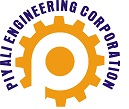Piyali Group Corporation is the proud designer, supplier, exporter and manufacturer of highly efficient, and reliable Activated Carbon Plant Project. PIYALI GROUP is India’s only company that offers turnkey projects. These kind of projects utilize fully automatic, high-efficiency, dependable, and high-performance activated carbon rotary kilns.
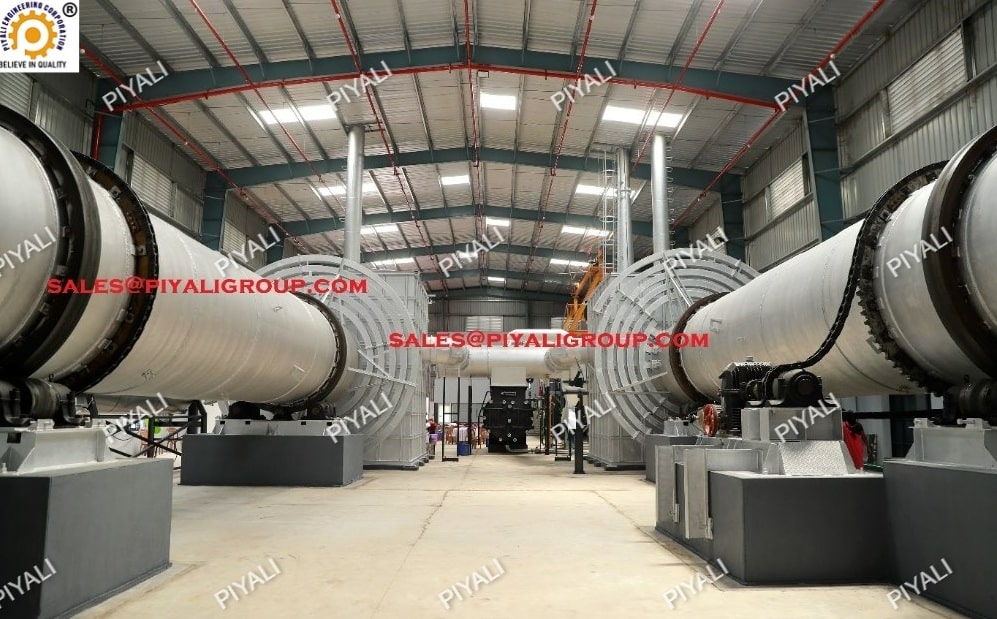
PIYALI Delivers:
- Rotary Kiln Shell with the Path Ring
- Trunnion Roller with Complete Shaft Assembly
- Guide RollerAssembly
- Support Roller with the Shaft Complete Assembly
What is Activated Carbon and Types of Activated Carbon?
Activated carbon is a form of carbon processed to make it highly porous, and therefore highly effective at adsorbing (not absorbing) molecules and impurities from liquids or gases.
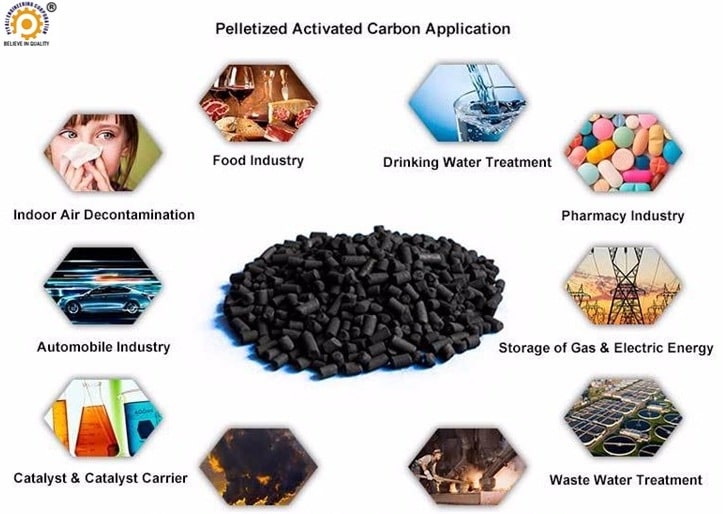
Types of activated carbon
- Powdered activated carbon (PAC): This type of activated carbon is made by grinding carbon sources such as coconut shells, wood charcoal, or coal into a fine powder. PAC is commonly used in water treatment applications.
- Granular activated carbon (GAC): This type of activated carbon is made by heating carbon sources to high temperatures and then activating them with steam. The resulting material is then crushed into granules of various sizes. GAC is commonly used in air and water treatment applications.
- Extruded activated carbon (EAC): This type of activated carbon is made by mixing carbon sources with a binder and then extruding the mixture into cylindrical pellets. EAC is commonly used in gas purification applications.
Some other forms of activated carbon are:
- Impregnated activated carbon: This type of activated carbon is produced by impregnating the carbon with chemicals like potassium permanganate or silver, which enhances its adsorption properties. It is commonly used in air filtration systems and for odor control.
- Acid-washed activated carbon: This type of activated carbon is produced by washing the activated carbon with acid, which removes any inorganic impurities and improves its purity. It is commonly used in pharmaceutical and food processing applications.
- Steam activated carbon: This type of activated carbon is produced by heating the carbon source with steam, which creates a highly porous structure with a large surface area. It is commonly used in gas and air purification applications.
COST-EFFECTIVENESS:
The cost of making activated carbon from coconut shells and other carbon sources can vary depending on several factors, including the cost of the raw materials, the cost of energy to produce the activated carbon, and the equipment used to manufacture the activated carbon. As such, it is difficult to provide a definitive cost for making activated carbon from coconut shells or other sources. However, it is generally believed that making activated carbon from coconut shells is more expensive than making it from wood charcoal or coal, but it is also considered to be a more sustainable and eco-friendly option.
Raw materials used for the production of activated carbon
The choice of raw material depends on several factors such as the availability, cost, and properties required for the intended application. Some of the best raw materials for activated carbon production with worldwide acceptance include:
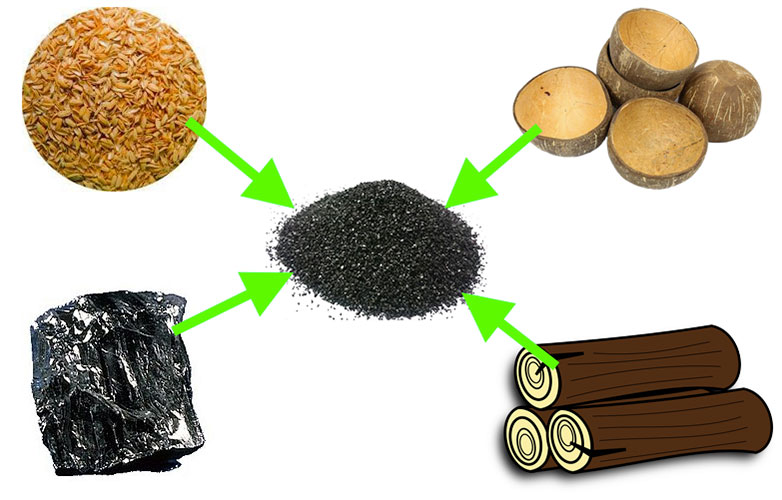
Types of raw material used for activated carbon process:
- Coconut shells: Coconut shells are a popular raw material for activated carbon production due to their high carbon content, low ash content, and sustainable sourcing. They also produce activated carbon with a high adsorption capacity.
- Wood: Wood is another popular raw material for activated carbon production due to its high carbon content and availability. It produces activated carbon with a wide range of pore sizes and is commonly used in air and water treatment applications.
- Coal: Coal is a widely used raw material for activated carbon production due to its high carbon content and low cost. It produces activated carbon with a high adsorption capacity and is commonly used in industrial applications.
- Lignite: Lignite is a low-grade coal that is also used for activated carbon production due to its high carbon content and low cost. It produces activated carbon with a wide range of pore sizes and is commonly used in gas purification applications.
- Bamboo: Bamboo is a fast-growing and renewable raw material for activated carbon production. It produces activated carbon with a high adsorption capacity and is commonly used in air and water treatment applications.
The choice of raw material depends on the specific application, cost, and availability. However, coconut shells and wood are widely accepted as the best raw materials for activated carbon production due to their high quality and sustainability.
Why Coconut shell is the best raw material for produce activated carbon?
There are several reasons why coconut shell activated carbon is widely accepted as a superior choice compared to other types of activated carbon, including wood-based activated carbon. Some of the reasons are:

- High adsorption capacity: Coconut shell activated carbon has a higher adsorption capacity compared to other types of activated carbon, meaning it can effectively remove more impurities from water or air.
- Consistent pore structure: Coconut shell activated carbon has a consistent pore structure with well-defined micropores and mesopores, which allows for a high surface area and efficient adsorption of impurities.
- Low ash content: Coconut shell activated carbon has a lower ash content compared to other types of activated carbon, which means it produces less residue and has a longer lifespan.
- Sustainability: Coconut shells are a renewable and sustainable source of activated carbon compared to other materials like coal, which is a non-renewable resource.
- No environmental contamination: The production of coconut shell activated carbon does not result in any environmental contamination or harm, unlike the production of some other types of activated carbon.
- Low impurities: Coconut shell activated carbon contains fewer impurities, which makes it suitable for use in food, pharmaceuticals, and other applications where purity is important.
Overall, coconut shell activated carbon is a high-quality and sustainable material that offers superior adsorption capacity and consistent pore structure compared to other types of activated carbon. Therefore, it is widely accepted and preferred for various applications, especially in water and air treatment industries.
Production process for coconut shell-based activated carbon
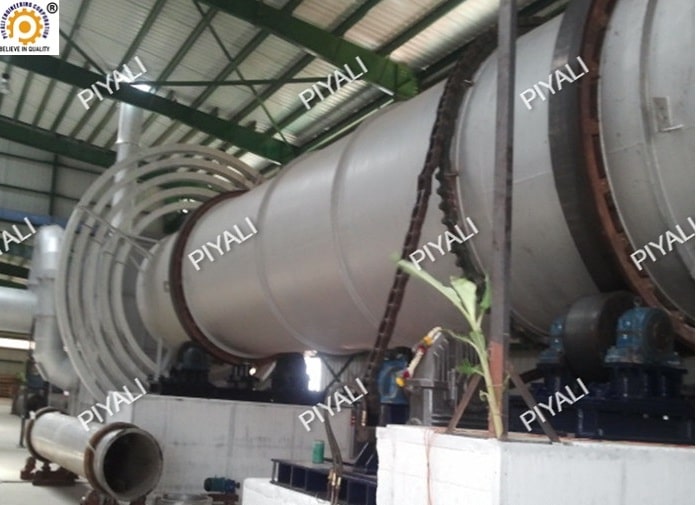
The production process for coconut shell-based activated carbon involves the following steps:
- Carbonization: The first step is to carbonize the coconut shells in a furnace or kiln. This process involves heating the coconut shells in the absence of air at high temperatures (400-600 °C) for several hours. This converts the coconut shells into a high-carbon content material called charcoal.
- Activation: The charcoal is then activated by exposing it to steam or chemicals such as potassium hydroxide or phosphoric acid. This process creates a network of pores and increases the surface area of the charcoal, making it highly porous and able to adsorb impurities.
- Washing and drying: After that, the activated charcoal is washed with water to remove any impurities and dried in a kiln.
- Grading and packaging: The final step involves grading the activated carbon into different sizes, depending on the intended application, and packaging it in bags or containers.
The production process may vary depending on the manufacturer, and additional steps may be included, such as impregnation with chemicals to enhance its adsorption properties.
Overall, the production of coconut shell-based activated carbon is a sustainable and environmentally friendly process that utilizes a renewable resource. The resulting activated carbon is a high-quality material that is widely used in various applications, including water and air purification, gas adsorption, and industrial processes.
Activated Carbon Plant Project supplier – PIYALI GROUP
- Piyali Engineering Corporation is a professionally managed manufacturing company with over 40 years of experience.
- Nowadays, Piyali is one of the leading suppliers of a wide range of high-quality industrial spare parts, components, and sub-assemblies for DRI-Sponge Iron Plant, Steel Plant, Fertilizer Plant, Activated Carbon Plant, Cement Plant, and other projects and industries.
- Piyali has set new standards of excellence to provide superior-quality products.
Why Choose PIYALI For Activated Carbon Plant?
Piyali Group India is a reputed Leading Activated Carbon Processing Plant Manufacturers In India and established company with over 40 years of experience in designing and manufacturing industrial equipment, including activated carbon plants. There could be several reasons why Piyali Group India is popular worldwide for activated carbon making plant:
- Experience and Expertise: Piyali Group India has extensive experience in designing and manufacturing activated carbon plants. This experience may have helped them develop a deep understanding of the technology and have honed their production process to deliver high-quality equipment.
- Quality Materials and Components: The company claims to use high-quality materials and components in their activated carbon plants. The use of quality materials and components may have contributed to the reliability and durability of their equipment.
- Customization: Piyali Group India offers customized activated carbon plants designed to meet the specific needs of their clients. This customization may have helped them to cater to a wide range of applications and industries.
- Technical Support: The company provides technical support to their customers to help ensure that the activated carbon plants are installed and operated correctly. Also, they offer training and support for maintenance and troubleshooting.
- Competitive Pricing: Piyali Group India claims to offer competitive pricing for their activated carbon plants. This competitive pricing may have helped them to gain a wider customer base and popularity worldwide.
It’s worth noting that the actual reasons why Piyali Group India is popular for activated carbon making plants may depend on several factors, including the specific requirements of the application, the quality of the materials and components used, and the expertise of the installation and maintenance team.
